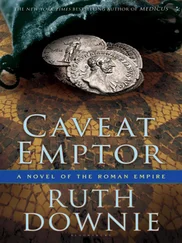Ruth Downie - Semper Fidelis
Здесь есть возможность читать онлайн «Ruth Downie - Semper Fidelis» весь текст электронной книги совершенно бесплатно (целиком полную версию без сокращений). В некоторых случаях можно слушать аудио, скачать через торрент в формате fb2 и присутствует краткое содержание. Жанр: Исторический детектив, на английском языке. Описание произведения, (предисловие) а так же отзывы посетителей доступны на портале библиотеки ЛибКат.
- Название:Semper Fidelis
- Автор:
- Жанр:
- Год:неизвестен
- ISBN:нет данных
- Рейтинг книги:5 / 5. Голосов: 1
-
Избранное:Добавить в избранное
- Отзывы:
-
Ваша оценка:
- 100
- 1
- 2
- 3
- 4
- 5
Semper Fidelis: краткое содержание, описание и аннотация
Предлагаем к чтению аннотацию, описание, краткое содержание или предисловие (зависит от того, что написал сам автор книги «Semper Fidelis»). Если вы не нашли необходимую информацию о книге — напишите в комментариях, мы постараемся отыскать её.
Semper Fidelis — читать онлайн бесплатно полную книгу (весь текст) целиком
Ниже представлен текст книги, разбитый по страницам. Система сохранения места последней прочитанной страницы, позволяет с удобством читать онлайн бесплатно книгу «Semper Fidelis», без необходимости каждый раз заново искать на чём Вы остановились. Поставьте закладку, и сможете в любой момент перейти на страницу, на которой закончили чтение.
Интервал:
Закладка:
“There is the circle of very large stones, madam.”
“Do they do anything?”
“Not that I know of. But you might like the temple of Sulis Minerva at Aquae Sulis.”
“What does that do?”
“It is an old and very holy place where a constant supply of hot water springs out of the ground.”
“How very convenient,” she conceded. “If one were short of slaves.”
“The people throw in offerings to the goddess and curses on their enemies.”
“Well, I suppose it will have to do. Is it nearby?”
Sadly, it was not.
The only way to get to Paulina at Deva was to travel north with the emperor. Even that was a better prospect than staying in Londinium, discussing cushion covers with the governor’s wife. Besides, there was always a faint chance that the stories of a northern land of perpetual daylight might be true. Even if they were not, Tranquillus and Clarus would be amusing and intelligent company on the journey. Although they did not dare say so, she was sure they, too, wished they were back at home: Tranquillus working on his writing, and Clarus, who always looked as though his uniform belonged to somebody else, with his nose buried in a scroll.
Hadrian could find someone else to bore with his lectures about drawings and measurements. His latest project might be the biggest and best wall in the empire, but it was still just a wall. Of course, she was the only one who had ever dared to tell him so.
An auspicious day had been chosen for the start of the voyage, and the omens had been good. Even so, things had gone wrong almost straight away. The dress she wanted to wear turned out to be in one of several trunks loaded onto the wrong ship. Clarus had been assigned to another vessel with most of his men, while the quiet and nondescript man who had been hanging around in the governor’s palace-and was undoubtedly some sort of spy-turned up on deck and then vanished, giving her the uneasy feeling that he had hidden somewhere to watch everybody. Or perhaps just her.
Tranquillus had shrunk yet again from letting her read his History of Famous Prostitutes and still refused to tell her stories from it lest the emperor should disapprove. Then after two days, the wind had risen. The mounting seas had hidden Clarus’s ship along with the vessel carrying her luggage and the motley collection of ambassadors seeking an audience with the emperor. She had felt increasingly ill. Tranquillus had retired to his cabin “to work on his latest biography.” Her maid reported that the only sign of productivity was the occasional emergence of a slave clutching a covered bucket.
She no longer cared. It was impossible to be amused or intrigued when the wallowing and heaving of the gray waters outside seemed to be competing with what was going on in one’s stomach. It was a great pity that the author who had declared the sea around the north of Britannia to be “sluggish and scarcely troubled by winds” was already dead. She would have taken great pleasure in arranging to have him tied in a sack and thrown into it.
The emperor, of course-that was how she thought of him these days: the emperor , not my husband -the emperor was still striding about the deck, giving orders to the captain and encouragement to the crew before expecting his weary companions to join him for stimulating conversation over platters that slid about on the table. Hadrian had scant sympathy for those who succumbed to seasickness: evidently it was one of the many forms of weakness to which one should not yield.
There was a soft tap at the door.
“Come!”
A blast of damp air blew a slave into the little cabin. The slave was clutching a tray in one hand and had a cup clamped onto it with the other. She fell backward, slamming the door with her bottom.
Faintly recollecting that she had asked for some water, Sabina said, “Just leave it on the floor.”
The slave, appointed by the emperor and so doubtless a spy, did as she was told and withdrew. A moment later the ship gave a violent lurch to starboard. Somewhere outside, a woman screamed. The cup fell over, sending trickles of water exploring first one way and then another across the boards. Every timber around her seemed to be creaking as if it was straining to part from its neighbor.
Men were shouting. Footsteps hurried past the cabin. The bedchamber slave crouched to wipe up the water just as the ship hit another wave. The girl fell sideways, grabbing at the end of Sabina’s small sleeping platform to steady herself. Seawater slid in under the door and sloshed across the planking. Normally silent unless told to speak, the girl began to gabble prayers to her gods.
More shouting. More lurching.
The empress Sabina lay on her side, closed her eyes and prayed for sleep. Or death. Either would do, so long as she stopped feeling like this, but neither was happening. The pitching and rolling of the ship grew worse. She clung to the edge of the sleeping platform to steady herself. Finally the prayers ended in a shriek as the world rolled sideways. Sabina lost her grip and landed on top of the struggling slave.
The women slid in a heap of limbs into the corner. Water was streaming in from all directions now. They clung to each other, the slave sobbing and wailing and Sabina trying to call out prayers to Neptune over the crashing of waves and the straining of timbers.
They both screamed as the door burst open and a bedraggled figure staggered in, clutching a knife. It bent to slash the ropes that held the trunk containing her jewelry in place beneath the sleeping platform and dragged it toward the door.
Remembering her duty, the slave made a lunge for it. “Thief! Stop!”
“Captain’s orders!” he yelled.
Sabina pulled her back, put her mouth against the girl’s wet hair, and shouted, “They are throwing everything over to make the ship lighter. Be glad you are not going with it. If this does not work, we will all drown.”
Chapter 14
Accius reclined on one of the rather worn couches that graced his private dining suite in the mansio, and Ruso congratulated himself on his mature lack of jealousy as he noted that this room alone was three times the size of the space he was sharing with his wife. The housekeeper who had irritated Tilla bustled around straightening covers while Ruso and the remaining guests spread themselves across the other couches.
While the mansio slaves in their matching cream-and-brown tunics trotted in to serve drinks, a confusing set of introductions was performed. There were four centurions, plus a man from the auxiliaries who explained that he was in charge of road patrols and proceeded to say nothing else all evening. Perhaps he was overawed. The others all had at least three jobs each. The granite-faced Geminus appeared to be in control of the recruits and of everyone else. Dexter had something to do with the maintenance crews. The plump one was in charge of stores and supplies, and smelled as though he had been checking out the wine stocks before he arrived. The one with thinning hair and a careworn expression was tasked with fobbing off the complaints of the locals, or as it was officially known, “Civilian liaison.” All gave the impression that they would be happy to shed a few titles in exchange for being posted somewhere else.
“So,” said Accius, helping himself from a bowl of hard-boiled eggs that had been cut into halves and dolloped with some sort of green sauce, “no problems getting things lit in the rain?”
Geminus said, “All done, sir. Quick, quiet, respectable.”
“Good. I didn’t want funerals hanging over the proceedings tomorrow. How are the men?”
“Our lads are all right, sir,” put in Dexter, apparently speaking for the plump one and the careworn one as well. “It’s the recruits.”
Читать дальшеИнтервал:
Закладка:
Похожие книги на «Semper Fidelis»
Представляем Вашему вниманию похожие книги на «Semper Fidelis» списком для выбора. Мы отобрали схожую по названию и смыслу литературу в надежде предоставить читателям больше вариантов отыскать новые, интересные, ещё непрочитанные произведения.
Обсуждение, отзывы о книге «Semper Fidelis» и просто собственные мнения читателей. Оставьте ваши комментарии, напишите, что Вы думаете о произведении, его смысле или главных героях. Укажите что конкретно понравилось, а что нет, и почему Вы так считаете.












